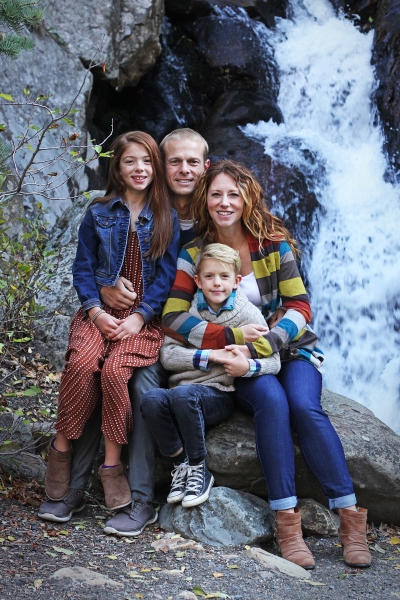Over the last couple years at our church, we have spent a lot of time studying the gospels, and I have noticed how much of the gospels are focused on a conflict that shapes the story and message. The gospel, as presented in scriptures is foremost presented as the story of Jesus. And like many stories, it is based around a conflict; the distinctions between the antagonist and protagonist define the meaning of the story. I think that (in America, at least) we often try to define an “elevator pitch” summation of the gospel, that focuses on what we view as our problem and God’s solution, and while this has value and merit, it can completely omit the conflict that is prominent in the gospel story found in the Bible. And omitting the central conflict of a story, fundamentally changes the nature and even message of the story. And I believe the conflict in the gospel story is not just historical trivia, but this conflict defines how we are to view what the Kingdom of God is working against, and working towards in our present world.
The visible antagonist in the gospels is pretty easy to identify: it is the Pharisees, the religious leaders, those who had accumulated influence, wealth, and power for their own gain. Numerous entire chapters of the gospels are devoted to Jesus railing against these leaders, often calling them hypocrites. And antagonism went both ways; the death of Jesus was primarily driven by this group.
I call these the “visible antagonist” because we also know that “our battle is not against flesh and blood, but against principalities”. Ultimately Jesus was facing off, not against the religious leaders themselves as individuals, but rather against the forces that animated them. We must look carefully at what these forces were. He was not warring against their culture or race, Jesus was Himself a Jew and part of their culture. Nor was this even just a theological fight (he even told the people to follow their teaching in Matt 23:3). Jesus was not opposed to their culture, but their hypocrisy, priorities, and value system.
So what did these religious leaders represent, what forces animated them, that Jesus was challenging? There is actually a lot of nuance to these conflicts and what they teach, and I don’t want to over simplify these, but I will try to highlight some of the core values and priorities that were in conflict (although certainly re-reading the gospels to really examine the narrative conflicts is worth more than reading my post).
First, these leaders held to the idea that their religious practices and norms, and their adherence to it and propagation of it had earned them a place of moral superiority and justification before God. They also represented privilege. They had power and influence. And probably had decent amount wealth and security. They were accepted and treated well among their peers. And this leads to one of the most challenging realizations of the gospels for me:
I look a like the Pharisees within our society. I fit the description closely, in socioeconomic terms, in privilege, and even as a church leader. This is very humbling. I grew up in family, a community, and a culture, and continue to be part of community and culture that looks an awful lot like privileged religious communities of the first century, in relation to their society. Our gospel is often so sanitized that sin has been defined as a legal issue to be resolved, rather than seeing a gospel where we often resemble the antagonists, and are prone to follow the same patterns that Jesus had so opposed.
And while this may not sound look “good news” (gospel), I believe Jesus challenged these religious leaders and adherents because He loved them, and was offering a better way to them. And there were those that chose to follow him, like Nicodemus, Joseph and even Paul. But their path was not one of simply continuing to follow the religious status quo and its value system. They had to be willing to give up their self-justification and moral supremacy that they found in their religious code to truly encounter Jesus. And as challenging as the gospel conflict is to me, Jesus was offering the Pharisees (and me!) hope and a new way of life.
From a historical perspective, we know that Jesus entered into society that was looking for a “messiah”, that would restore power to the Jews over and against their enemies. They wanted a Jesus that would make Israel, the political nation state, great again (to use a contemporary phrase). They were looking for something similar to what this phrase means today. They wanted power to achieve religious “liberty”, institute their moral code, and keep outsiders away, just as is common today.
The value system of the pharisees was one that demonstrated that they found their vindication and superiority in their religiosity, power, adherence to their norms, and their traditions. The forces that animated this can be described as legalism and control. In Matt 23, Jesus condemned the leaders for how they were exercising power over others in trying to control and dictate their behaviors in accordance to their religious norms they had developed. They found their vindication and moral superiority in these traditions, history, and procedures, and found their honor and stature in making converts and followers that would then lift them up, and maintain their place of power and influence.
And from this place of feeling superiority and power, they seemed to believe that they were serving God by the degree that the could enforce, even use state or punitive means of force, to dictate the religious law (John 8). They looked for a political force that would maintain their status quo of position and tradition and raise up their influence to the national level. And they saw this as service to God. This misses the reality of the law helping people to understand and relate to God, not because God was needing service or servants, and lacked the power on His own to get this. Forcing conformance does not provide a service to God that He is otherwise lacking. This is just as true today with misguided efforts to legislate moral decrees that are about our vertical relationship with God.
Based on Pharisees behavior, as Jesus described it, they idealized and looked to a leader that could represent their values with great force, pomp, show, and gusto. Jesus was the absolute antithesis of this. Jesus taught and demonstrated that the pinnacle of leadership was servant-hood. He interrupted their status quo of legalist tradition, by showing that it wasn’t that law and its prescriptions itself, like sabbath-keeping, that were of value, they ultimately were pointing towards living on behalf of others. He challenged their hierarchies of power, and instead lifted up those that are weak, poor, and powerless. The pharisees wanted their tribe and people to be the favored people of God, over and above others. Instead, Jesus declares that his gospel will go to all the nations.
Jesus also criticized how they extended, and developed their own extra-biblical set of values and statutes (Matt 5:43, 23:18). These religious statues often started with OT dictates, but were twisted well beyond the original meaning. Likewise modern American “Christian values” often have come to encompass an entire extra set of statutes around “small government”, gun-control, and when life begins, that have evolved and developed far from real teachings of the Bible.
In the midst of this conflict, Jesus contrasts His values against the natural religious tendency of humanity. The tendency to gravitate to finding vindication in specific codes and behaviors is contrasted with the “weightier matters” of “justice, mercy, and faithfulness”. The hypocrisy that Jesus condemns is in the pursuit of religious show or propagation (Matt 23:5, 15), instead of the humble pursuit of living sacrificially for others. If our Christian values aren’t being pursued through generosity and sacrifice in feeding the hungry, welcome stranger, and caring for the least of these, we may need to humbly ask if they are really Christ’s values.
I think it is tempting to treat the gospel conflict as just historical chronicles and antiquated in relevancy and application to our present world. We may think that we live in a very different world, and have different forces that we are working against, whether it be secularism, globalism, or liberalism (or perhaps deeper and crazier conspiracy theories), than described in the gospels. But I believe that the gospels, including the gospel conflict, were written because they speak with clarity, precision, relevance, and direct application to us, in our times, to understand clearly what the conflict and forces are in our present world. In the first century context of Jesus, God’s shows the greatest focus of His rebuke towards those that are religious and claiming to be people of God, and likewise warns of harsher wrath and judgment for those that claim to be religious leaders and followers of God than even infamous Sodom (Matt 11:23). Should we pretend these same forces do not apply to us today? Just as the Jews misidentified the true conflict, and the true values of the Kingdom, if we don’t apply the gospel conflict to understand our situation, we may fail to humble ourselves, and pursue His Kingdom and to have the right perspective on present conflicts.
The forces of religious power-seeking, legalism, and tribalism are just as active and in contrast to the way of Christ today, as they were then. The gospel conflict casts a clear line down on our society. There is an unmistakable force that insidiously seeps into our values, our churches, our leaders, that can animate us with the same priorities as the pharisees: that we “win” by achieving greater religious influence and power in government, by protecting our religious “liberty”, by maintaining our norms and status quo by keeping outsiders away with walls and security, by lobbying and pushing for institutes to adopt/codify our definitions of gender, sexuality, and formation of life. But Jesus defined completely different priorities, declaring that our focus shouldn’t revolve around defending against (possible) persecution, retributing those that have sinned, or gaining power. Rather Jesus presents a clear and contrasting set of values, that we live relationally with others, caring for them, and lifting those in need, and living in relationship with God, not “achieving” favor through legalistic behaviors, but by sharing his heart, his cares and concerns.
We are not immune from the same religious tendencies by identifying as “Christians”. Jesus declared the Jews “right” in who they worship (John 4:22). Likewise having “Christian” affiliation and the right object of worship does not put us on the right side of this conflict. Nor do labels of “Christian worldview”, “Christian values”, or “Christian music” afford us exceptional favor. If anything, the self-assurance of religion put us at greater danger of following in the Pharisees footsteps. And again this applies to me, I freely confess that I look a lot like, and have a similar position and privilege as the pharisees.
And as someone that can easily fit the profile of a pharisee, my hope is that Jesus was preaching good news to the pharisees too. In his challenges to the leaders, he was offering an invitation to a more abundant life, even to me, to us. And we know some of them even took up Jesus’ invitation. Even as He challenged them and us, He offered an invitation to live for this new Kingdom, and Nicodemus was an example of a pharisee that heard and responded. Likewise, when Jesus challenged the rich and powerful to use their resources for the poor, one rich young ruler walked away in sorrow, but the other, Zaccheus followed him and found great joy! I have grown up believing many of the same things as the Pharisees and still seeking to become free of these to follow Christ.
We have been going through the sermon on the mount where Jesus commands us to serve one master, and have singular focus (your eye should be “singular” in its focus). I have heard a lot of people say it is confusing to discern truth and know what to care about these days. And indeed in the world of social media where a “share” and “retweet” buttons lead constant broadcasting of noise, rumors, and distorted values, we are deluged with false information that can be disorienting; it is challenging! On top of that, in an election year, the Christian Pharisees are out in full force telling us how critical it is that we focus on fighting for our religious liberties and fight against the various “enemies” out there; nearly the exact opposite value system of Jesus and those we called us to love. If you are trying to “balance” the priorities of Pharisee values with the value of Christ, it will be struggle. Trying to balance that is too much bear! Jesus is inviting us to have a singular pursuit that gives focus and clarity about what to care about.
I believe an accurate understanding of the gospel, the good news, is predicated on an accurate understanding of what this good news is contrasted with. And ultimately, there is hope found in the gospel conflict, because out of conflict comes truly good news. Lord, have mercy on me, on us, and lead us out of our religiosity and help us to understand and take you invitation to be free of the way of the pharisees, the worry about if our power or influence might wane, and take up the singular, beautiful way of Christ, living out the mission of His Kingdom to live sacrificially, lift up the poor and powerless, and welcome all the nations to Him and His way.








 Jennika turned 10 and decided to grow several inches this year. She still really loves dancing and is starting to enjoy playing the piano more and more. She danced in the
Jennika turned 10 and decided to grow several inches this year. She still really loves dancing and is starting to enjoy playing the piano more and more. She danced in the  Nutcracker this winter and really loved it. She was a party girl, which meant I got to learn how to roll her hair in curlers and she got to wear them for 6-12 hours before every performance!
Nutcracker this winter and really loved it. She was a party girl, which meant I got to learn how to roll her hair in curlers and she got to wear them for 6-12 hours before every performance! to add a few inches to his height this year. Despite growing like a weed, he still has not lost any of this baby teeth, and therefore had a case of what’s commonly called Shark Tooth. His front adult teeth were starting to come in behind his front baby teeth. He thought this was super cool, especially the name, until he learned he would have to have his baby teeth pulled! He endured the process (twice!) really well and we are hoping all his other baby teeth will loosen and fall out naturally.
to add a few inches to his height this year. Despite growing like a weed, he still has not lost any of this baby teeth, and therefore had a case of what’s commonly called Shark Tooth. His front adult teeth were starting to come in behind his front baby teeth. He thought this was super cool, especially the name, until he learned he would have to have his baby teeth pulled! He endured the process (twice!) really well and we are hoping all his other baby teeth will loosen and fall out naturally. Korban also made a big decision to get baptized this year. This was huge for him since he does not particularly enjoy getting up and speaking in front of people. He was very nervous but stayed strong and faithful. I think it will be something he always remembers because it was a hard thing for him to do.
Korban also made a big decision to get baptized this year. This was huge for him since he does not particularly enjoy getting up and speaking in front of people. He was very nervous but stayed strong and faithful. I think it will be something he always remembers because it was a hard thing for him to do.